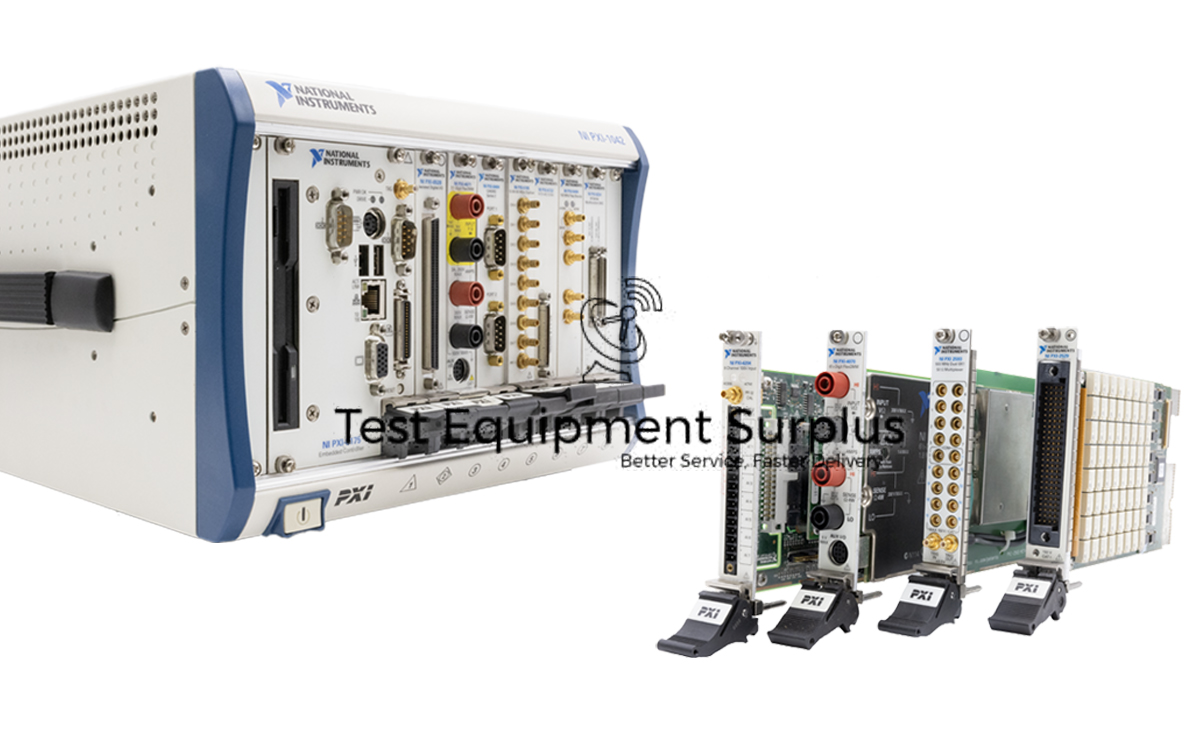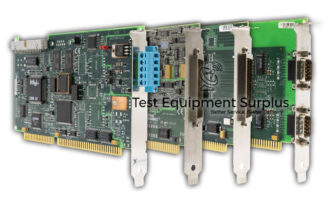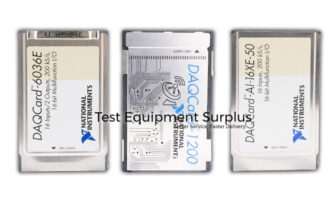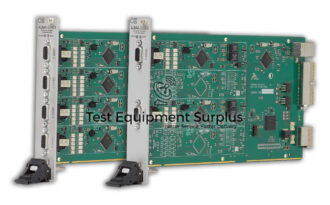Description
The National Instruments PXIe-8821 PXI Controller, with part numbers 785158-04, 785545-01, and 785158-33, features a powerful Dual-Core, 2.6 GHz processor that enables efficient handling of complex tasks. Integration with LabVIEW offers a robust development environment for a wide range of applications including I/O, data acquisition (DAQ), dynamic signal acquisition, motion control, image acquisition, reconfigurable I/O, and instrumentation, enhancing its versatility in various system configurations.
For communication with peripheral devices, the PXIe-8821 supports a variety of protocols such as CAN, GPIB, Ethernet, and Serial Protocols, ensuring seamless data exchange and system integration. The controller is compatible with NI-VISA software, which allows for the integration of third-party PXI/CompactPCI modules, expanding its adaptability to different hardware configurations.
Designed for both development and standalone operations, the PXIe-8821 can be programmed to boot automatically without human intervention, making it ideal for deployment in environments requiring autonomy. The controller is supported by the LabVIEW Professional Development System and LabVIEW Real-Time Module, which provide advanced tools for the creation of reliable, real-time applications.
Users can select from multiple hard drive options, including traditional rotating disk drives and solid-state drives (SSDs), to suit different environmental conditions and usage requirements. For instance, SSDs are recommended for extended temperature ranges and continuous 24/7 operation. The rotating disk drives are designed to operate between 5 °C to 50 °C and can be stored in temperatures ranging from -40 °C to 65 °C. Conversely, SSDs can operate in a temperature range of 0 °C to 55 °C and can be stored in conditions as cold as -40 °C.
| Feature | Description |
|---|---|
| Product Name | National Instruments PXIe-8821 PXI Controller |
| Part Numbers | 785158-04, 785545-01, 785158-33 |
| Processor | Dual-Core, 2.6 GHz |
| Application Development | LabVIEW integration for I/O, DAQ, dynamic signal acquisition, motion control, image acquisition, reconfigurable I/O, and instrumentation |
| Peripheral Communication | CAN, GPIB, Ethernet, Serial Protocols |
| Software Compatibility | NI-VISA for third-party PXI/CompactPCI module integration |
| Standalone Operation | Ability to embed code for automatic system booting without human interaction |
| Development Systems | LabVIEW Professional Development System, LabVIEW Real-Time Module |
| Hard Drive Options | Rotating Disk Drives, SSD (for extended temperature and 24/7 operations) |
| Rotating Disk Drives Operating Temperature | 5 °C to 50 °C |
| Rotating Disk Drives Storage Temperature | -40 °C to 65 °C |
| SSD Operating Temperature | 0 °C to 55 °C |
| SSD Storage Temperature | -40 °C to
Question 1: What are the primary features and software compatibilities that distinguish the National Instruments PXIe-8821 PXI Controller as a versatile tool for various applications such as data acquisition and motion control, and how do its hard drive options cater to different environmental conditions? Question 2: What protocols does the National Instruments PXIe-8821 PXI Controller support for communication with peripheral devices, and which software facilitates the integration of third-party PXI/CompactPCI modules? Question 3: What types of environments and operational conditions are SSDs recommended for with the National Instruments PXIe-8821 PXI Controller, and how do these conditions differ from those suitable for rotating disk drives? Question 4: What are the main features of the National Instruments PXIe-8821 PXI Controller, and how do they contribute to its functionality in system integrations and autonomous operations? Question 5: What integration capabilities does the National Instruments PXIe-8821 PXI Controller offer for enhancing its versatility in various system configurations? |




